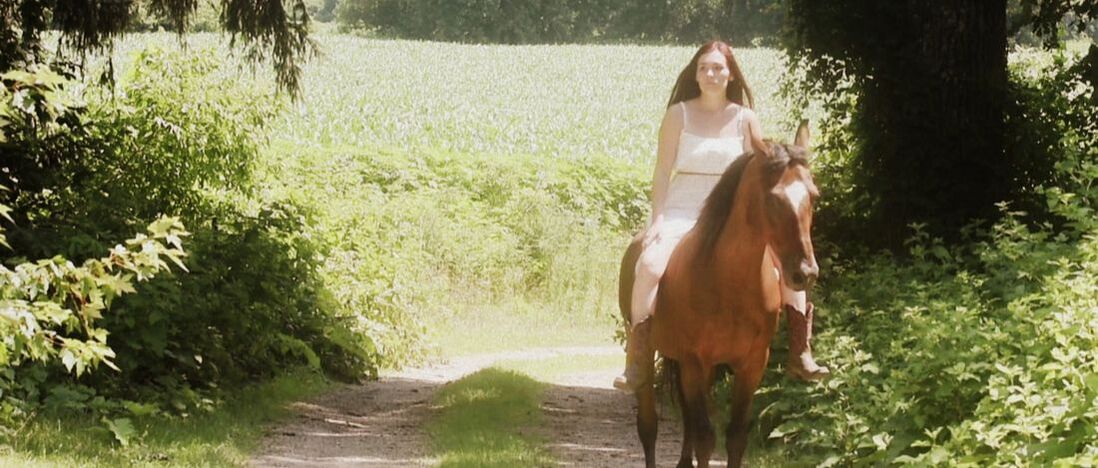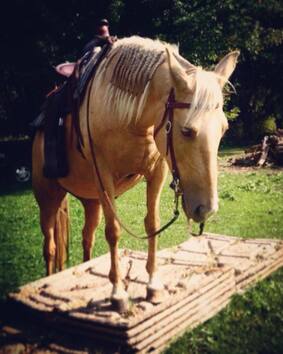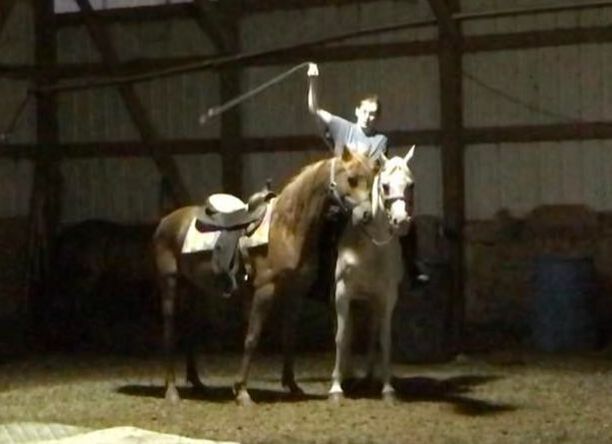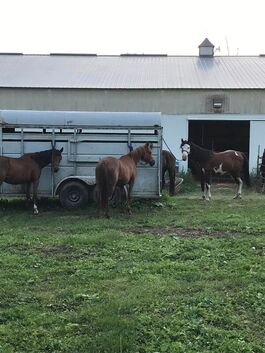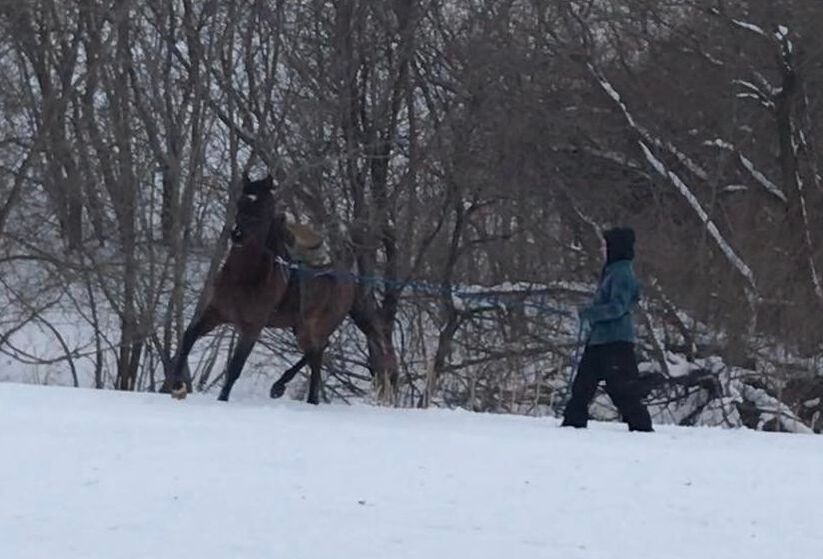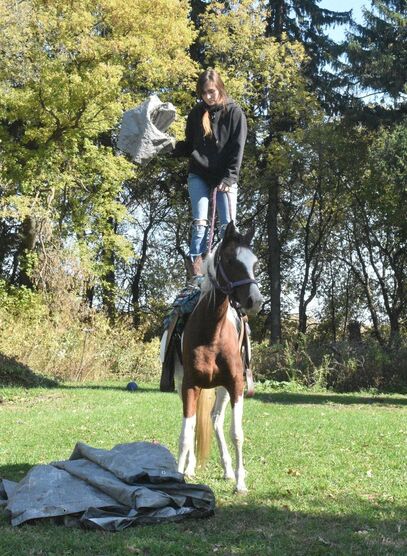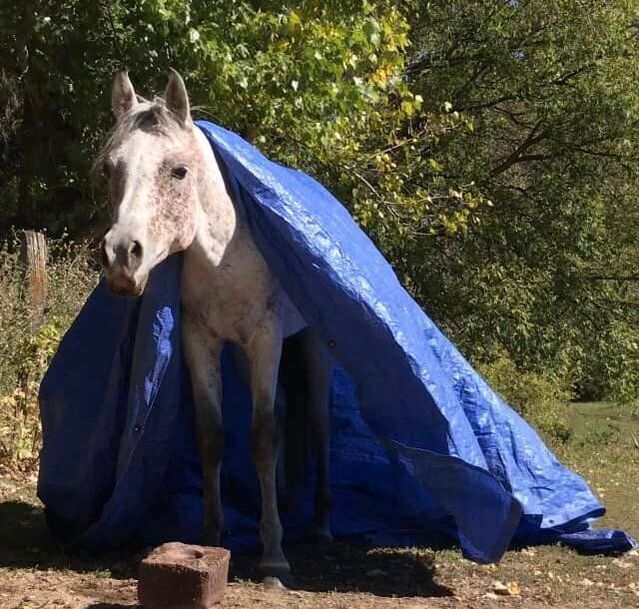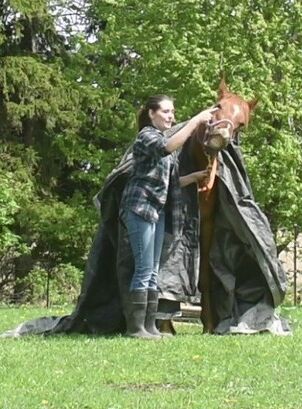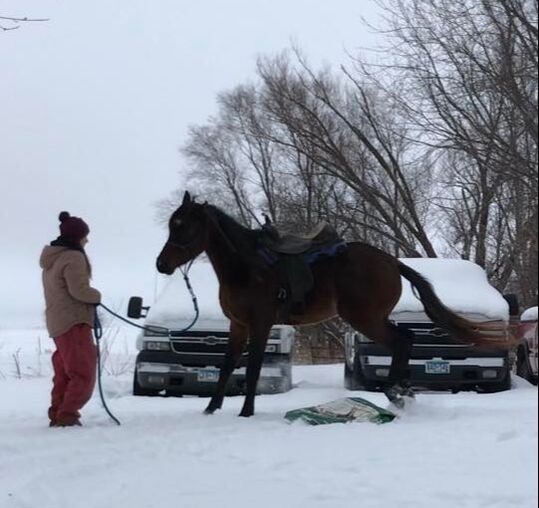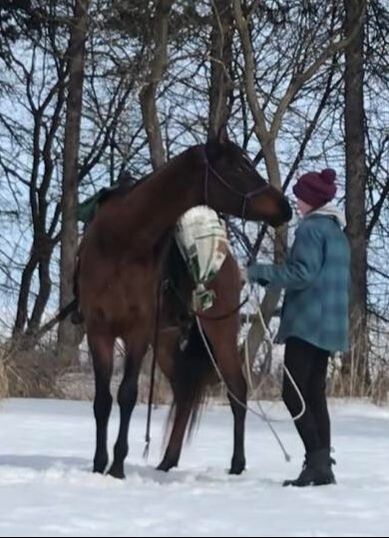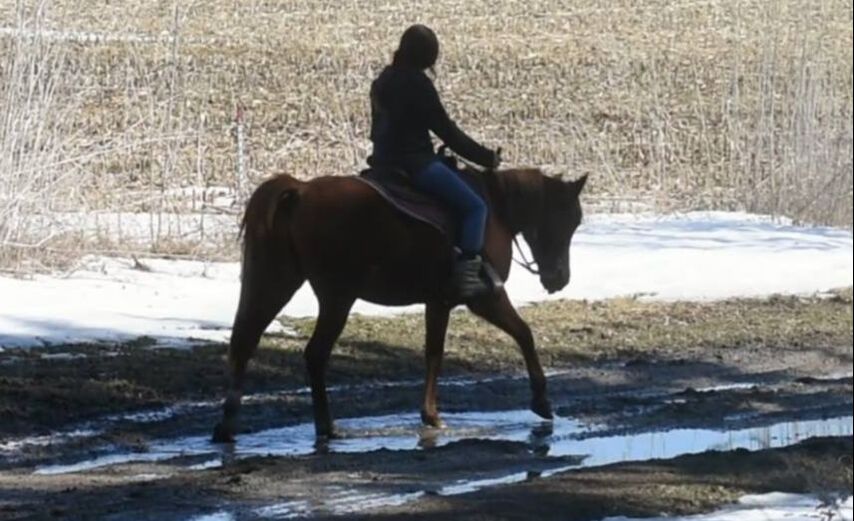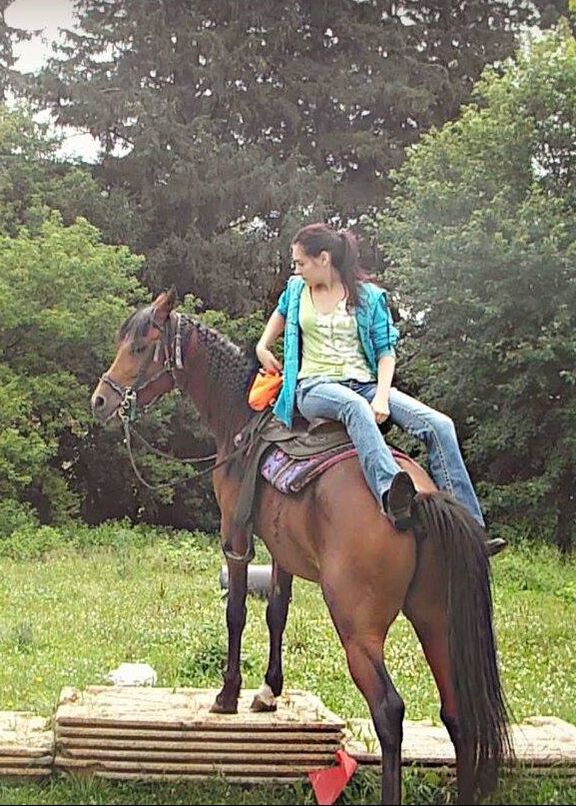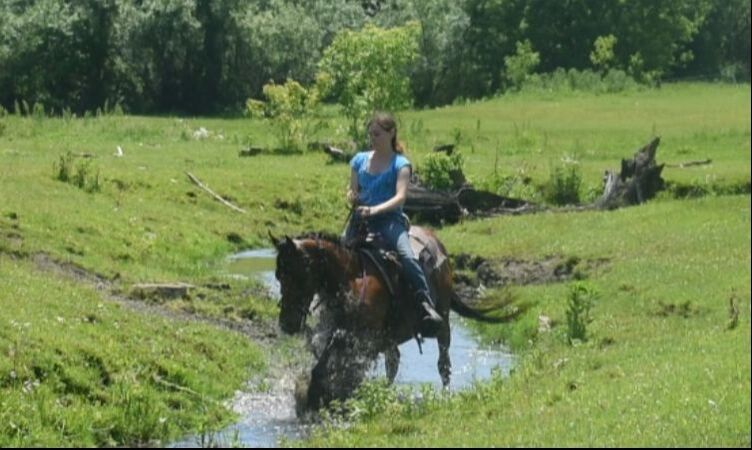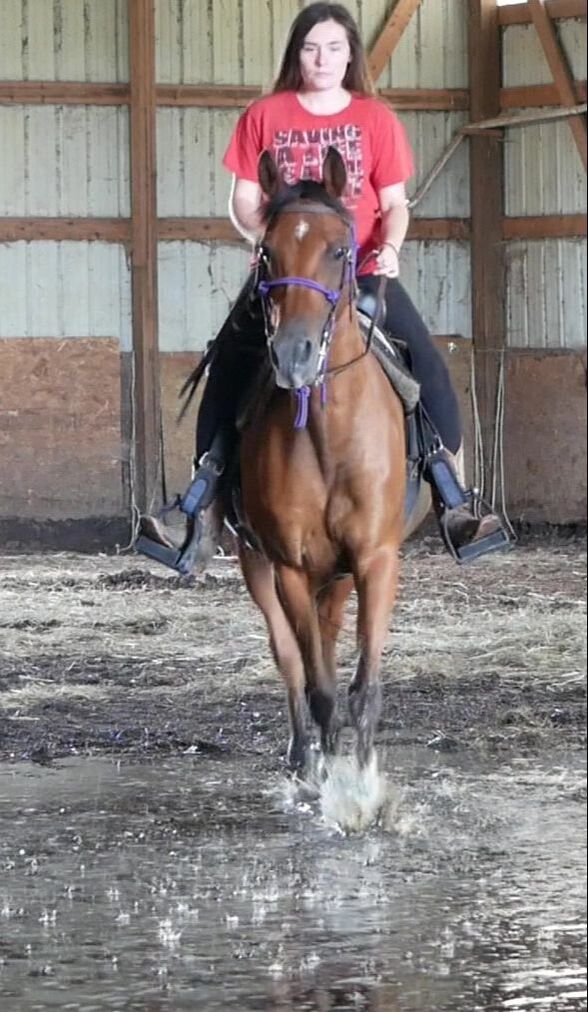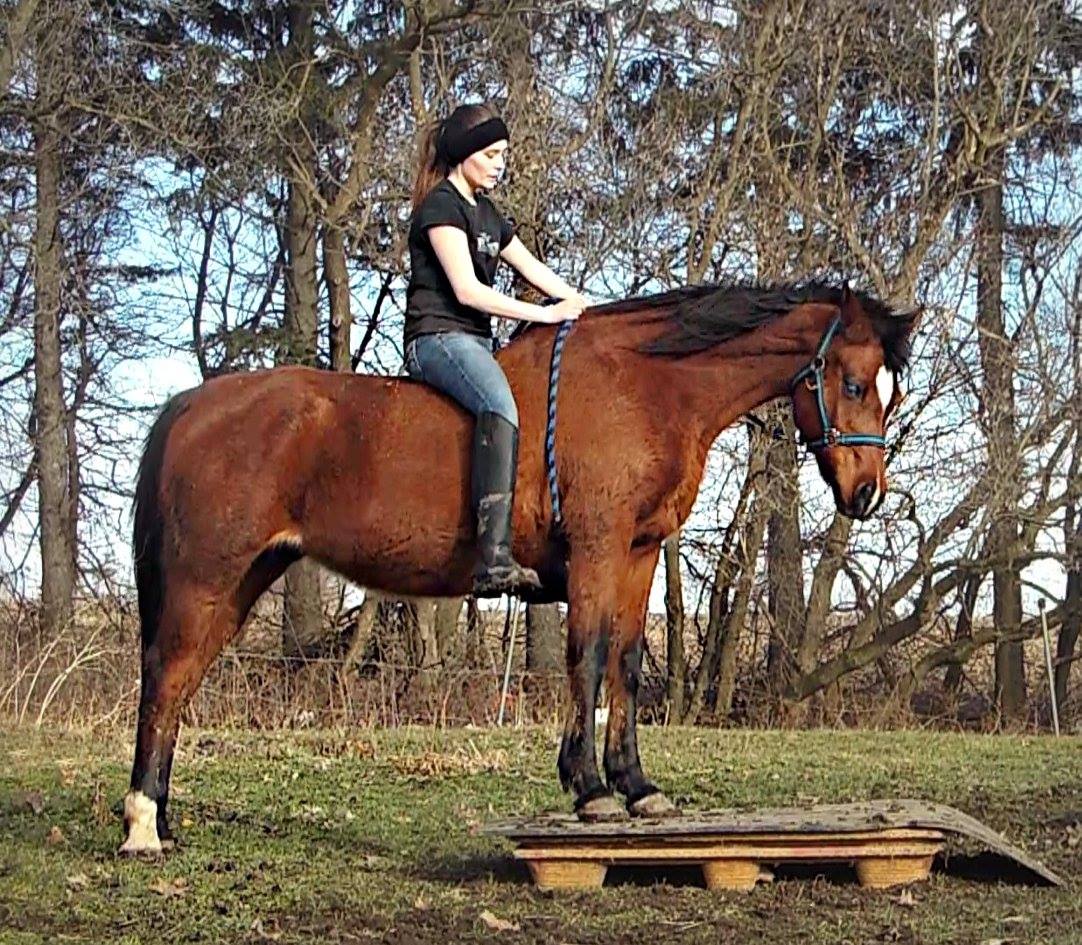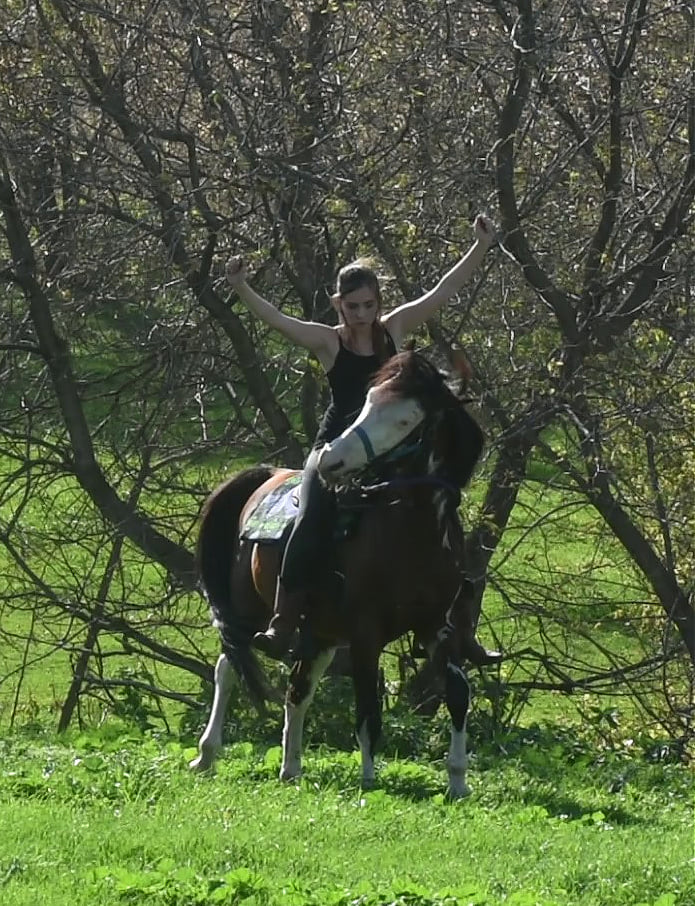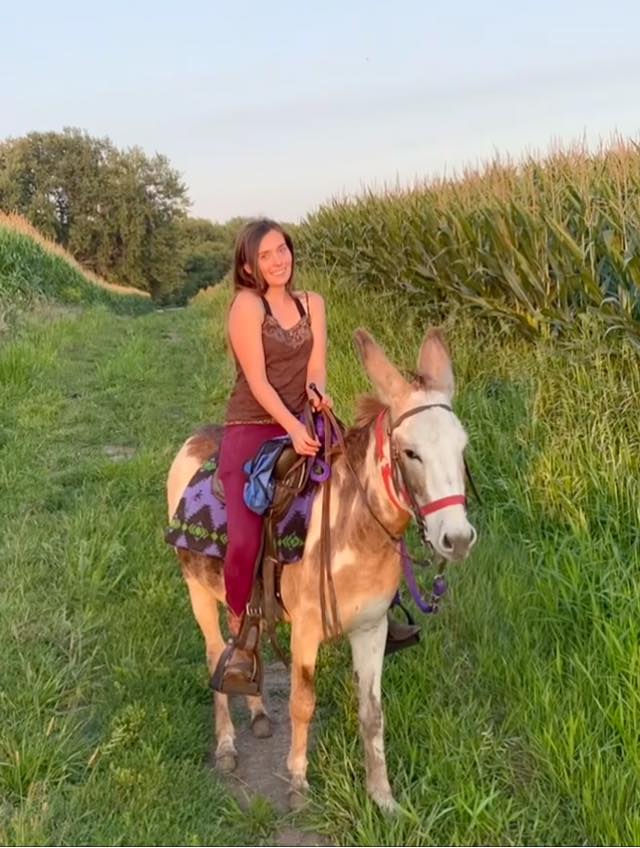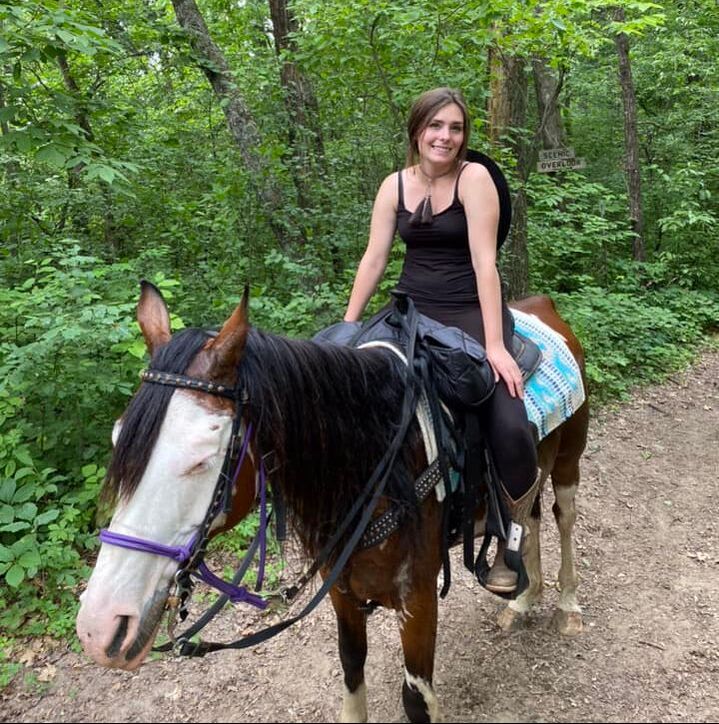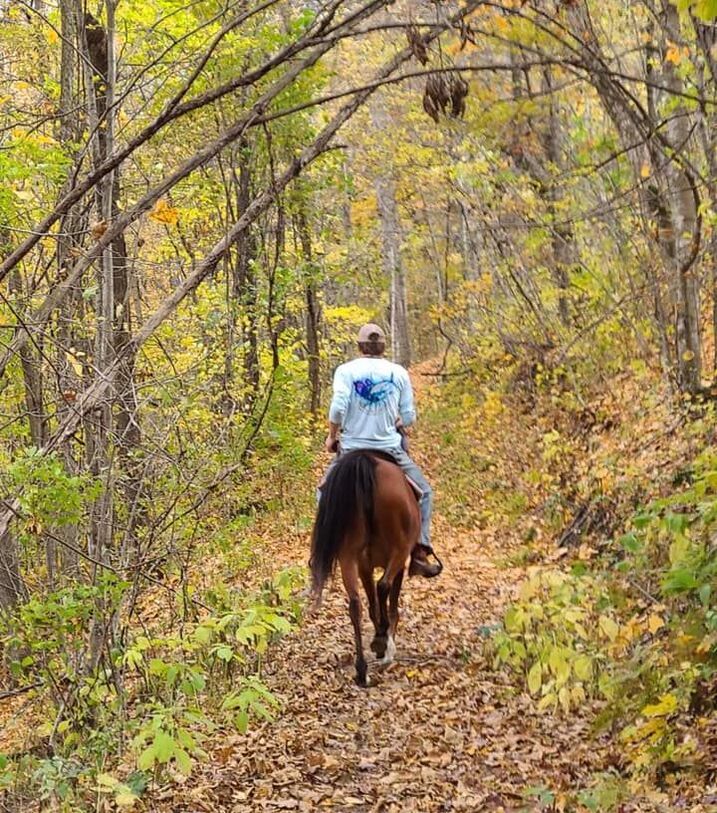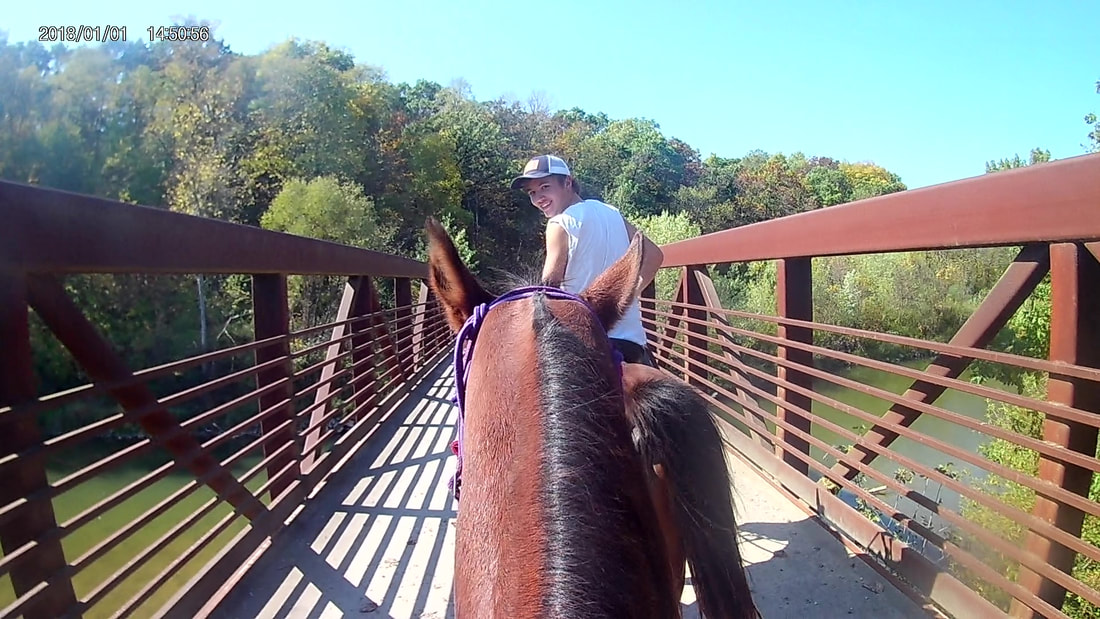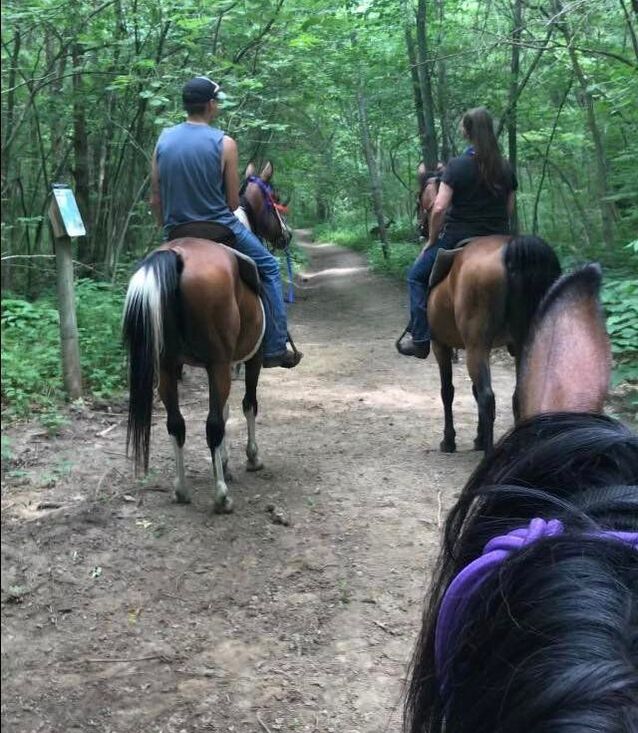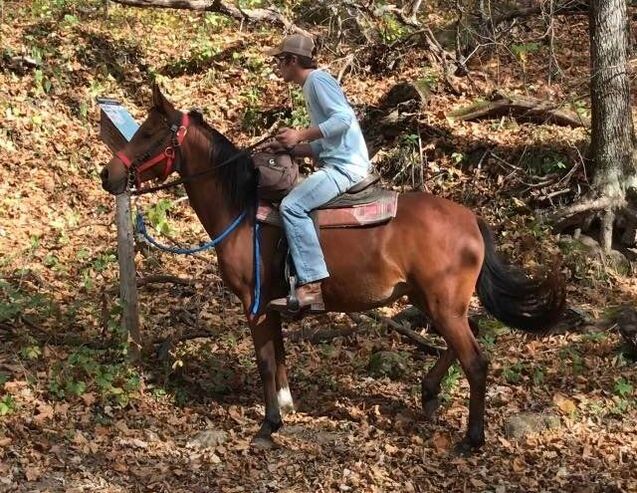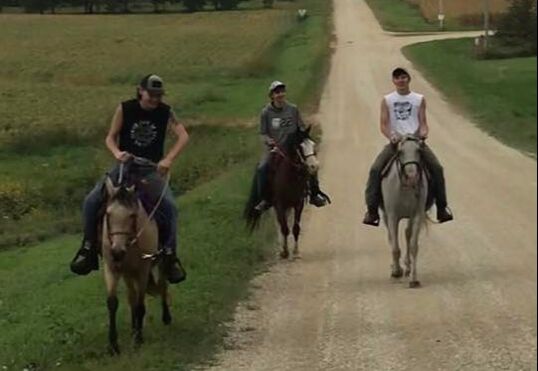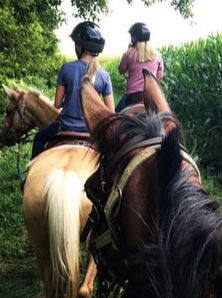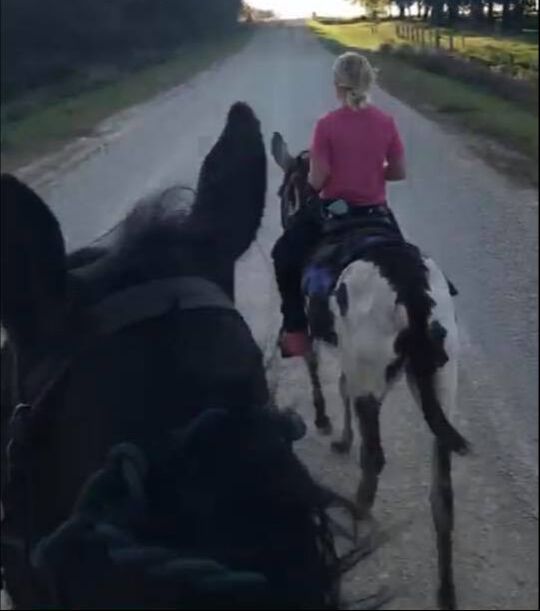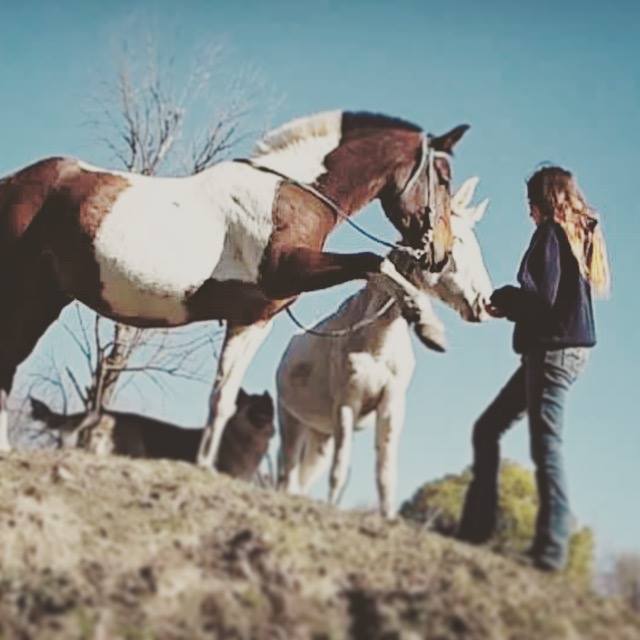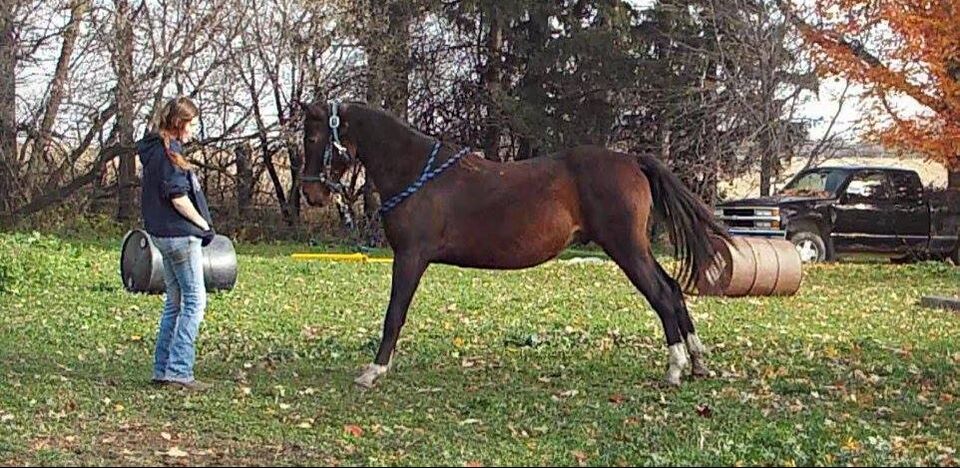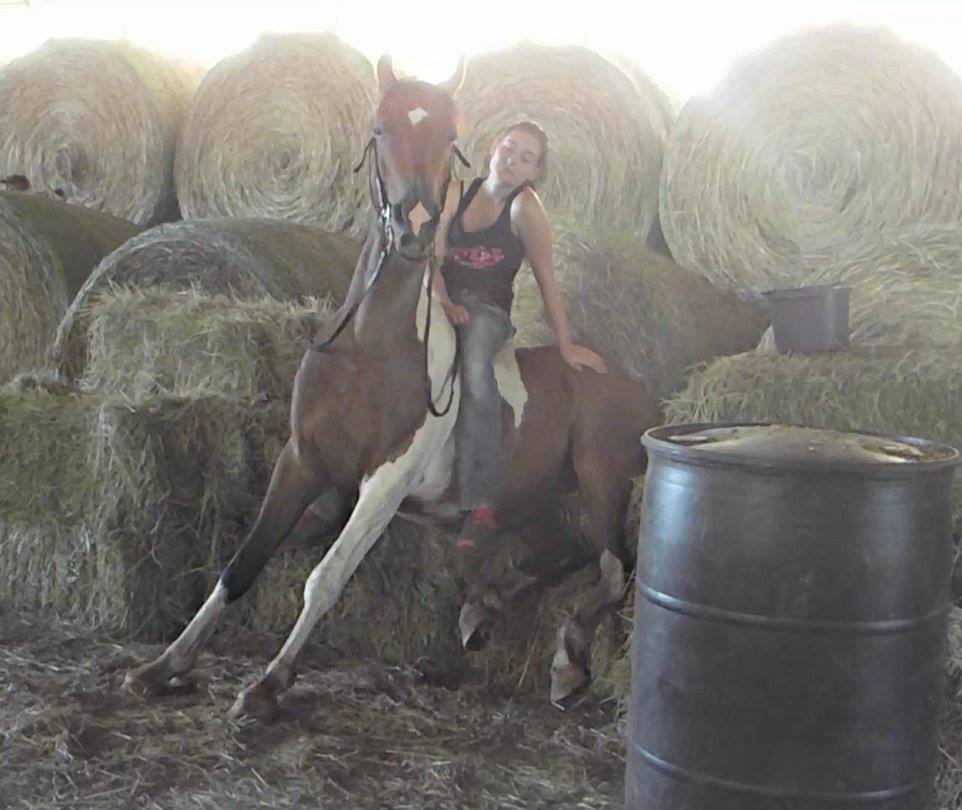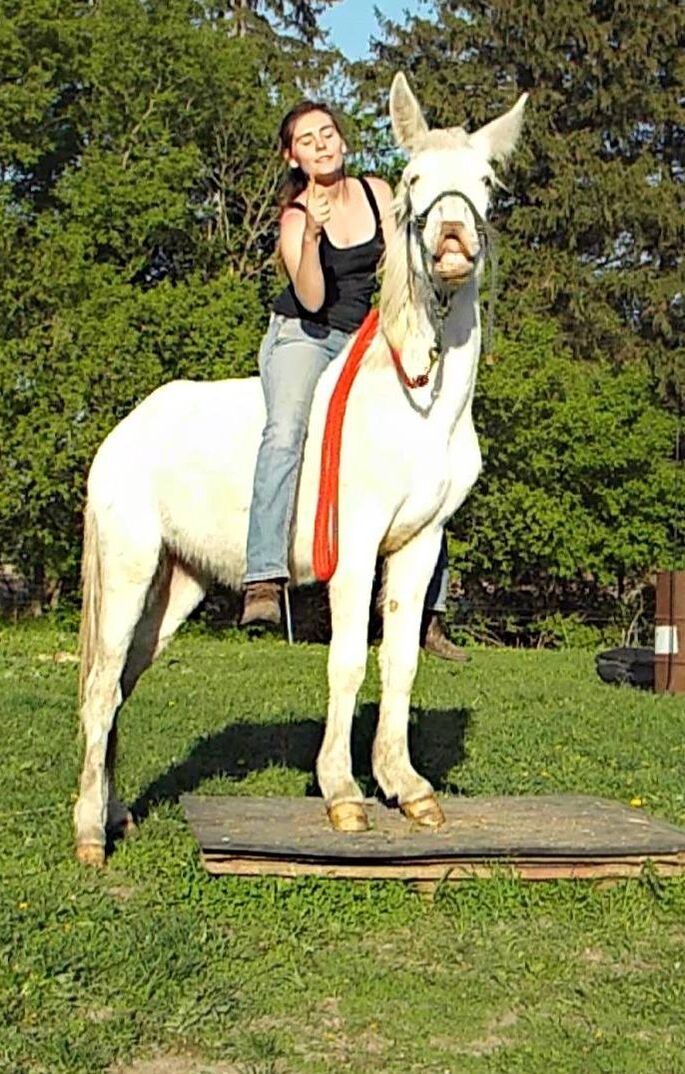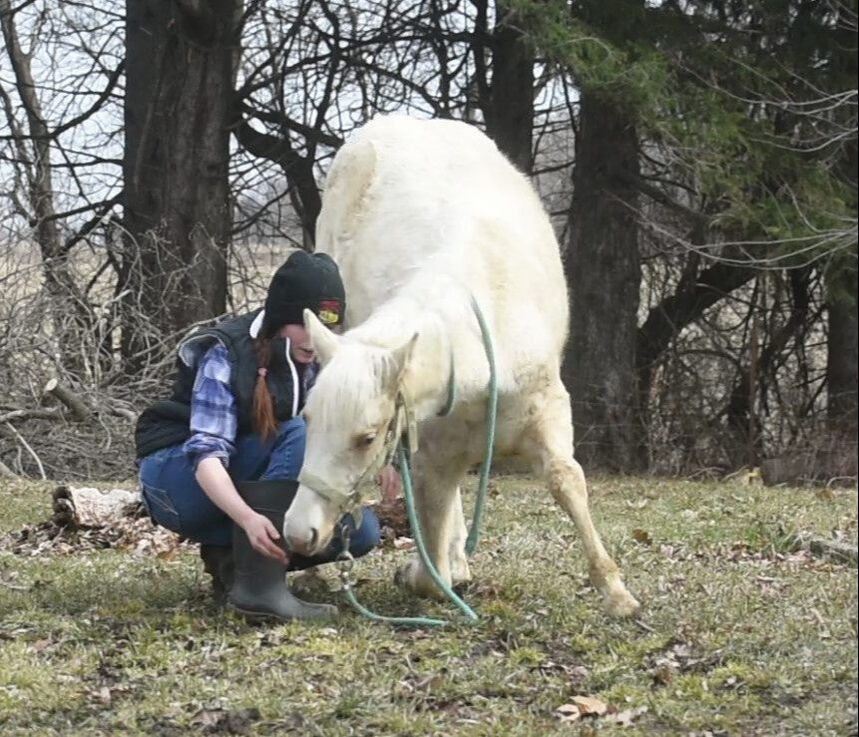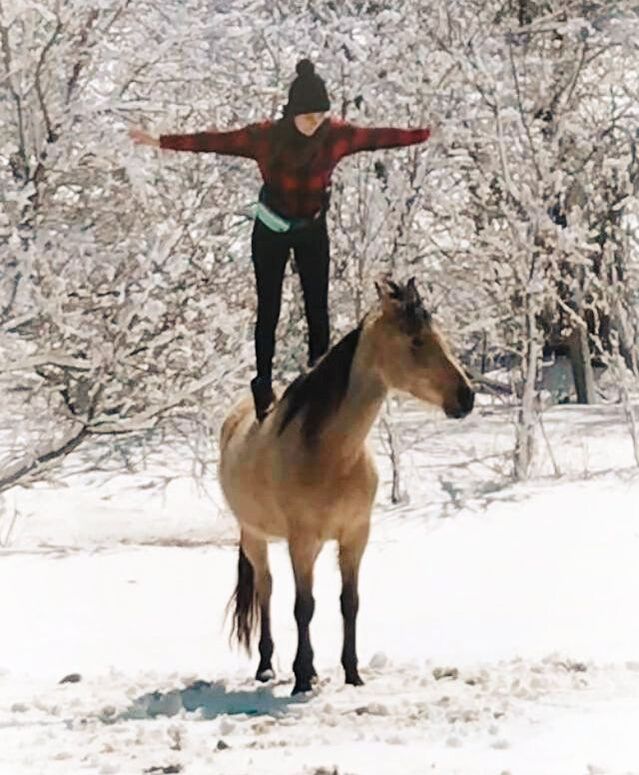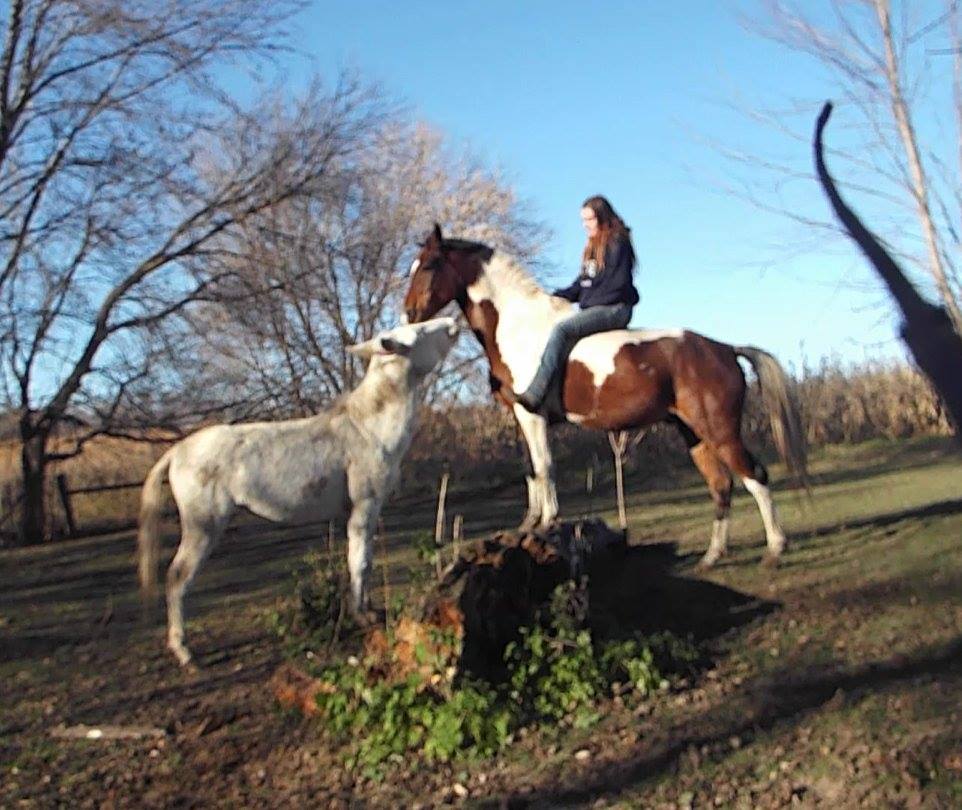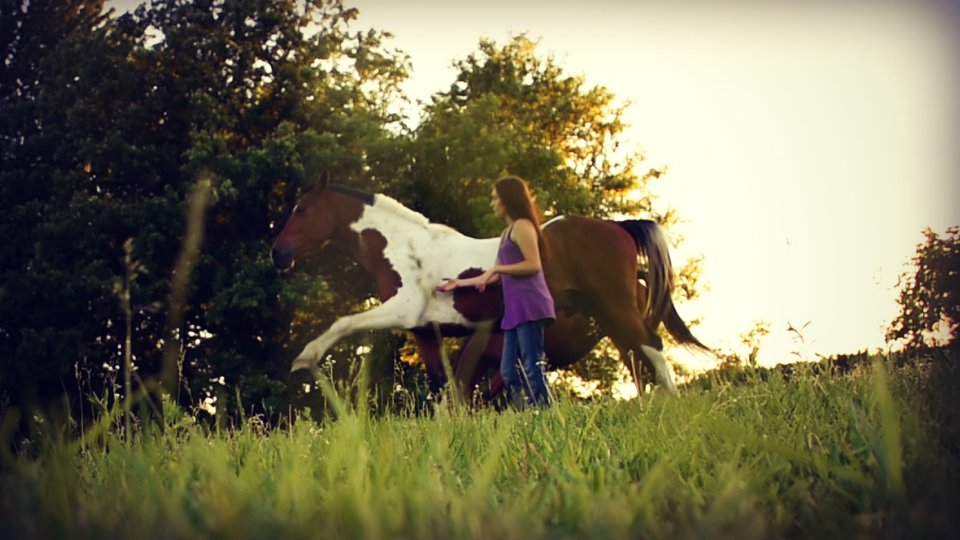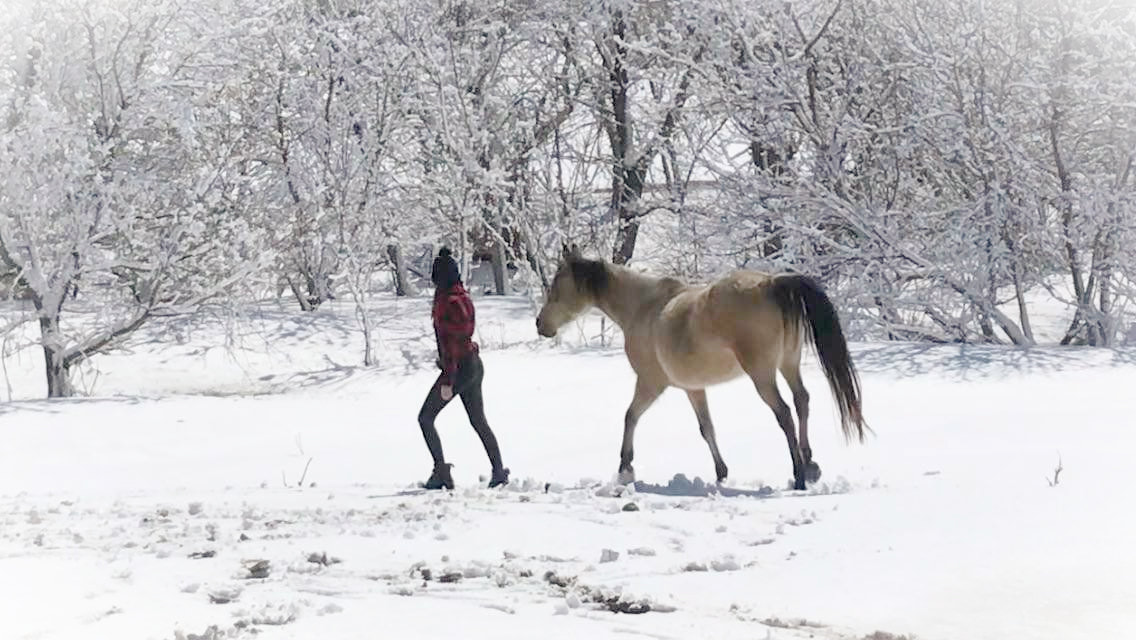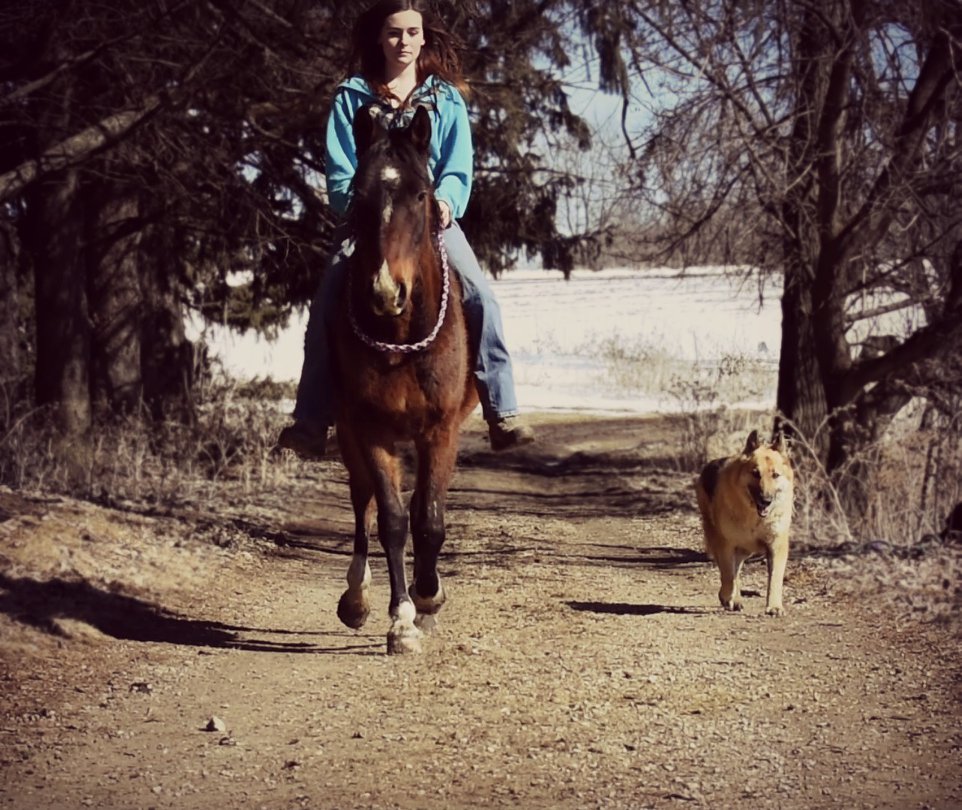Celeste is a certified horse trainer with 15 years of experience in training multiple breeds, specializing in Arabian horses specifically, thorough groundwork, desensitization, colt starting, trail training, liberty work, trick training, and behavioral problems. Focusing on the mind and well-being of each and every horse, her methods are revolved around building trust and creating a connection. She does not believe in pushing or using fear tactics.
Every horse I have in for training goes through a rigorous training and desensitization program with a combination of methods based on positive reinforcement, natural horsemanship, and liberty work. I am constantly learning and adding more into my training program as my experience continues. Each and every horse is trained at their own pace. It is well known that every horse is its own individual and they're treated and trained in that way.
A solid foundation is of most importance in my methods. I personally prefer a horse of solid mind with their personality and natural being intact. Horses in my training program learn how to be patient, willing, and personable through my methods which shows through in most, if not every single horse. Helping many abused/mistrusting horses. Desensitization, groundwork, and trail training are a consistent routine as the basics to create a good future for the horse after they leave here.
Under saddle, my goal is always to create a soft, forward, and confident horse that anyone with horse experience can get on and ride. Although, I do not train under one specific discipline, horses I have trained have gone on to compete in many different disciplines, as well as be versatile enough to do more than one!
Every horse I have in for training goes through a rigorous training and desensitization program with a combination of methods based on positive reinforcement, natural horsemanship, and liberty work. I am constantly learning and adding more into my training program as my experience continues. Each and every horse is trained at their own pace. It is well known that every horse is its own individual and they're treated and trained in that way.
A solid foundation is of most importance in my methods. I personally prefer a horse of solid mind with their personality and natural being intact. Horses in my training program learn how to be patient, willing, and personable through my methods which shows through in most, if not every single horse. Helping many abused/mistrusting horses. Desensitization, groundwork, and trail training are a consistent routine as the basics to create a good future for the horse after they leave here.
Under saddle, my goal is always to create a soft, forward, and confident horse that anyone with horse experience can get on and ride. Although, I do not train under one specific discipline, horses I have trained have gone on to compete in many different disciplines, as well as be versatile enough to do more than one!
Every horse I have in for training goes through a rigorous training and desensitization program with a combination of methods based on positive reinforcement, natural horsemanship, and liberty work. I am always seeking knowledge and adding more into my training program as my experience continues. Each and every horse is trained at their own pace. It is well known that every horse is its own individual and they're treated and trained in that way.
A solid foundation is of most importance in my methods. I personally prefer a horse of solid mind with their personality and natural being intact. Horses in my training program learn how to be patient, willing, and personable through my methods which shows through in most, if not every single horse. Helping many abused/mistrusting horses. Desensitization, groundwork, and trail training are a consistent routine as the basics to create a good future for the horse after they leave here.
Under saddle, my goal is always to create a soft, forward, and confident horse that anyone with horse experience can get on and ride. Although, I do not train under one specific discipline, horses I have trained have gone on to compete in many different disciplines, as well as be versatile enough to do more than one!
For an idea of what some of my training consists of take a look below!
A solid foundation is of most importance in my methods. I personally prefer a horse of solid mind with their personality and natural being intact. Horses in my training program learn how to be patient, willing, and personable through my methods which shows through in most, if not every single horse. Helping many abused/mistrusting horses. Desensitization, groundwork, and trail training are a consistent routine as the basics to create a good future for the horse after they leave here.
Under saddle, my goal is always to create a soft, forward, and confident horse that anyone with horse experience can get on and ride. Although, I do not train under one specific discipline, horses I have trained have gone on to compete in many different disciplines, as well as be versatile enough to do more than one!
For an idea of what some of my training consists of take a look below!
Groundwork
I personally prefer to train slow going according to the horse and its comfortability level. Tying and patience tying is done first to ensure a calm, respectful horse. One that tolerates long days, and anything done with them. My favorite thing is seeing a horse fully relaxed or comfortable enough around me to take a nap while tied out alone. You won't see a horse of mine currently in my training program that doesn't stand nice. They're started out being trained alone and out of sight from other horses to prevent and/or cure buddy sourness; a buddy sour horse is my worst nightmare and I personally refuse to ride a horse that is. They will learn, have a routine, be conditioned, and become great citizens. If I have a horse that isn't trusting or doesn't appreciate being in people's presence in the beginning, I will start with liberty work before anything else to get them more personable and willing to work with me. Not to mention, loving to work with me! Then attempting to learn the rest. Each and every horse is different, and I don't follow a cookie cutter method expecting to get the same results each time. Every horse I train is trained different and according to what they need throughout their time being with me.
|
|
Desensitization
Every single horse I train goes through a serious amount of desensitization to the point where they know they can have the upmost faith in me as a rider to stand still and wait for my direction vs. react in a way that wouldn't be good for either of us. So much so, our Arabians don't take off running anymore when I get a bag or tarp out to try to get some fancy pictures. They stop and look at me like I've gone insane. Not to say they become "bomb proof" because they don't, but they're more apt to stay calm longer to think things through first before immediately reacting or feeling threatened. My desensitization training usually limits spookiness to a spook in place if at all. I love teaching them learn to walk up to and "boop" any scary or uncomfortable objects so they know it isn't something to be frightened of. It is good to keep in mind that some horses need refreshers no matter how much desensitization they receive as time sitting, new life changes, new people, experiences, pain, or discomfort can make a horse spooky all over again. But a consistent desensitization routine makes for a solid horse and partner to have! I try my best to prepare a horse for anything possible before having to experience it in the saddle first. I make it fun, a super positive experience, and try to create a horse that sees people as if they know nothing could ever go wrong when they're in people's presence.
|
Starting Under Saddle / Colt Starting
Every horse I start under saddle has their own level of experience as far as handling and training goes by the time they end up in my hands, so I may take certain steps differently. Regardless, I always go slow, and make sure the horse is ready for each new step. I usually start off by transferring the groundwork and desensitization while they're under saddle. It's repetitive, but it works very well. I don't do any sort of "breaking out or bucking out." I use a combination of positive reinforcement and negative reinforcement to achieve the desired goals I have set in mind. I'm fortunate enough to take groundwork and desensitization so seriously to prevent bad behaviors and or bucking spells when it comes to starting them under saddle, working out any kinks or quirkiness that could eventually end my days of training horses. I pony a TON with newly started horses, everywhere, and anywhere possible that I feel is safe and beneficial to do so. So, they can get a feel for everything without hauling me all over first. Including getting started out on the trails.. Not to mention it creates more positive learning experiences for them in the beginning from learning by association of another, been there done that, horse. After I feel they're ready to continue to learn more under saddle I work on forward motion, softness, flexing, and giving to pressure in any order that comes first for them naturally. I start them out in a knot halter and don't transfer them into a bit until we have achieved the level of softness I prefer. Once we have a comfortable stop, turn, walk, and trot, we're ready to hit the trails! I do NOT introduce cantering up until around 60-90 days dependent on age, condition, and level of maturity both physical and mental and to be honest, I have no interest cantering any freshly started horse under 60 days, there is no point in rushing.
|
60-90+ Days Of Saddle Training
At 60-90+ days of training at least with our homebred horses, being I don't train for any certain discipline except with Endurance in mind, I'm primarily working on continuous and advanced conditioning, forwardness, softness, and creating comfortable gaits, as well as trail training. Most horses I have in training by this point are ready to go in any direction someone would like to take them. They have a solid foundation of the basics, have learned the essential skills needed to excel in life, and are at the point where having their own person will only make more of a difference as they will be able to be doted on and have one person to themselves. I try to have them ridden by other people to ensure they're where I would like them to be prior to sale or going home dependent on timing and schedules. If I feel a horse is not ready to be safely ridden by someone else at 90 days of training, they won't hit the sales list until they are.
|
Trail Training
My absolute favorite thing to do is be out on the trails! I make sure every horse I train is trail ridden as much as possible and also able to be ridden by others safely out on the trails. Trail training is dependent on each horse's level of progress throughout their training. Some are ready after 30 days and some need 60-90 days for me to feel confident enough to take them out onto the trails. Regardless, they're going to end up on the trails one way or another. I try to expose them to as many vehicles, atv's, and machinery as possible. Working on water crossings, deep mud, steeper hills, logs, bridges, rocky terrain, branches, brush, and fields with corn. I teach the horses to not only step over logs of different sizes but also to step up onto and climb over them. Working on having the horse confident leading trail rides, being in the middle, and also following. I try not to have them do one or the other too much as I don't want them getting comfortable only being in one place on a trial ride. The end result for trail training with me is having the basics down, tying patiently for any amount of time, able to have them be comfortable around and nice to horses around them, going at different speeds on the trail, working on leaving the group behind or staying back letting the group get further ahead (to limit buddy sourness and being on autopilot), and to be able to be ridden by others out on the trail without issue.
I won't take any horse that hasn't been trained by me personally out on trails without being restarted under saddle in the way I prefer to train them.
I won't take any horse that hasn't been trained by me personally out on trails without being restarted under saddle in the way I prefer to train them.
|
|
Trick Training
I usually end up teaching a horse one or two tricks during their course of training. Not for show, but to create further connection and to give them something back like a "snack break". It brings joy, positive reinforcement, and it usually becomes their favorite thing to do, they always have something to look forward to! It's not all work here, we get some playtime in too. Simple tricks such as saying "no", "yes", to smile, to talk, park out, etc. Whatever comes natural to them is usually what they get taught to save time! More advanced tricks I usually save for my personal horses or any horse I have in mind to make them a trick horse long term and they're usually listed for sale as that. Takes too much time and effort to train a horse to be a trick horse fully just to sell them into a home that won't use them as such so it doesn't happen often unless a horse has naturally high potential for it.
|
Liberty Work
You won't catch me selling many horses that have been consistently trained with Liberty work due to the endless amount of time put into them and connection I've made with them, consider yourself very lucky if you end up with one of mine that have been. I try not to do too much with any one horse unless they're my personal horses! But Liberty work done right makes a good horse exceptional and a distrustful or frightened horse a trusty steed in due time. If I feel a horse is not confident in themselves, distrustful, abused, unhandled for a significant amount of time, has had bad experiences, or is extremely personable and seeking a bond, I usually will start Liberty work with them in some shape or form to bring out potential I see in them.
|

